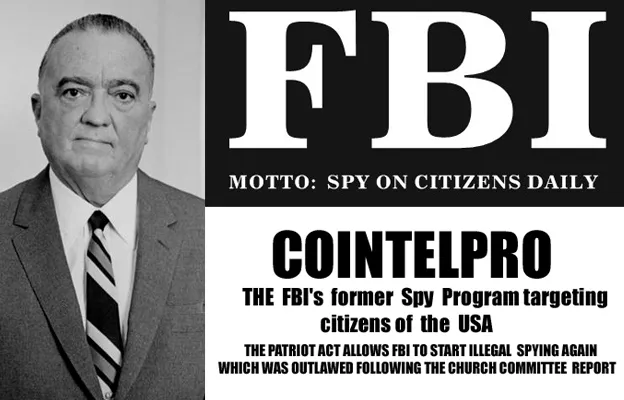In the not-so-distant past, a covert operation known as COINTELPRO was implemented by the United States government, shaping the landscape of citizen privacy as we know it today. Although its true intentions were veiled in secrecy, the impact of COINTELPRO has been far-reaching and has left an indelible mark on the concept of privacy for U.S. citizens.
COINTELPRO, short for Counter Intelligence Program, was a clandestine initiative launched by the Federal Bureau of Investigation (FBI) in the mid-20th century. It aimed to surveil and disrupt various political organizations, particularly those advocating for civil rights and social justice. While its stated purpose was to protect national security, many argue that COINTELPRO violated citizens’ privacy rights and undermined the fundamental principles of democracy.
Under the guise of fighting communism and countering domestic threats, COINTELPRO agents engaged in a range of covert activities. These included wiretapping phones, infiltrating organizations, spreading false information, and even inciting violence within targeted groups. The program’s methods were often highly invasive and relied on surveillance techniques that pushed the boundaries of legality and morality.
One of the lasting legacies of COINTELPRO is the erosion of trust between citizens and their government. The revelations of the program’s existence, initially brought to light through the efforts of journalists and whistleblowers, exposed a hidden world of government surveillance that shook the public’s faith in the notion of privacy. Many U.S. citizens began to question whether their personal lives and political beliefs were subject to intrusive monitoring by the state.
The impact of COINTELPRO extended beyond its immediate targets, reverberating throughout society. Its tactics of infiltration and disinformation created an atmosphere of suspicion and paranoia that persisted long after the program’s official termination in 1971. The scars left by COINTELPRO on the fabric of American democracy are still visible today, with debates over surveillance, civil liberties, and the balance between security and privacy remaining at the forefront of national discourse.
While the COINTELPRO program may have faded into history, its effects continue to shape the present. The revelations of its activities led to reforms and legal protections aimed at safeguarding citizens’ privacy, such as the Foreign Intelligence Surveillance Act (FISA) and the establishment of oversight committees. However, concerns over government surveillance and the erosion of privacy persist, as emerging technologies and the ever-expanding digital realm present new challenges.
In an era where personal data is constantly collected, analyzed, and exploited, it is vital to remember the lessons of COINTELPRO. The program serves as a stark reminder that the line between protecting national security and infringing upon the privacy rights of citizens is a delicate one, requiring ongoing vigilance and accountability.
So, let us reflect upon the shadowy past of COINTELPRO and recognize its lasting impact on American privacy. By understanding this history, we can strive to ensure that the rights and freedoms of U.S. citizens are upheld, even in an increasingly interconnected and complex world.












